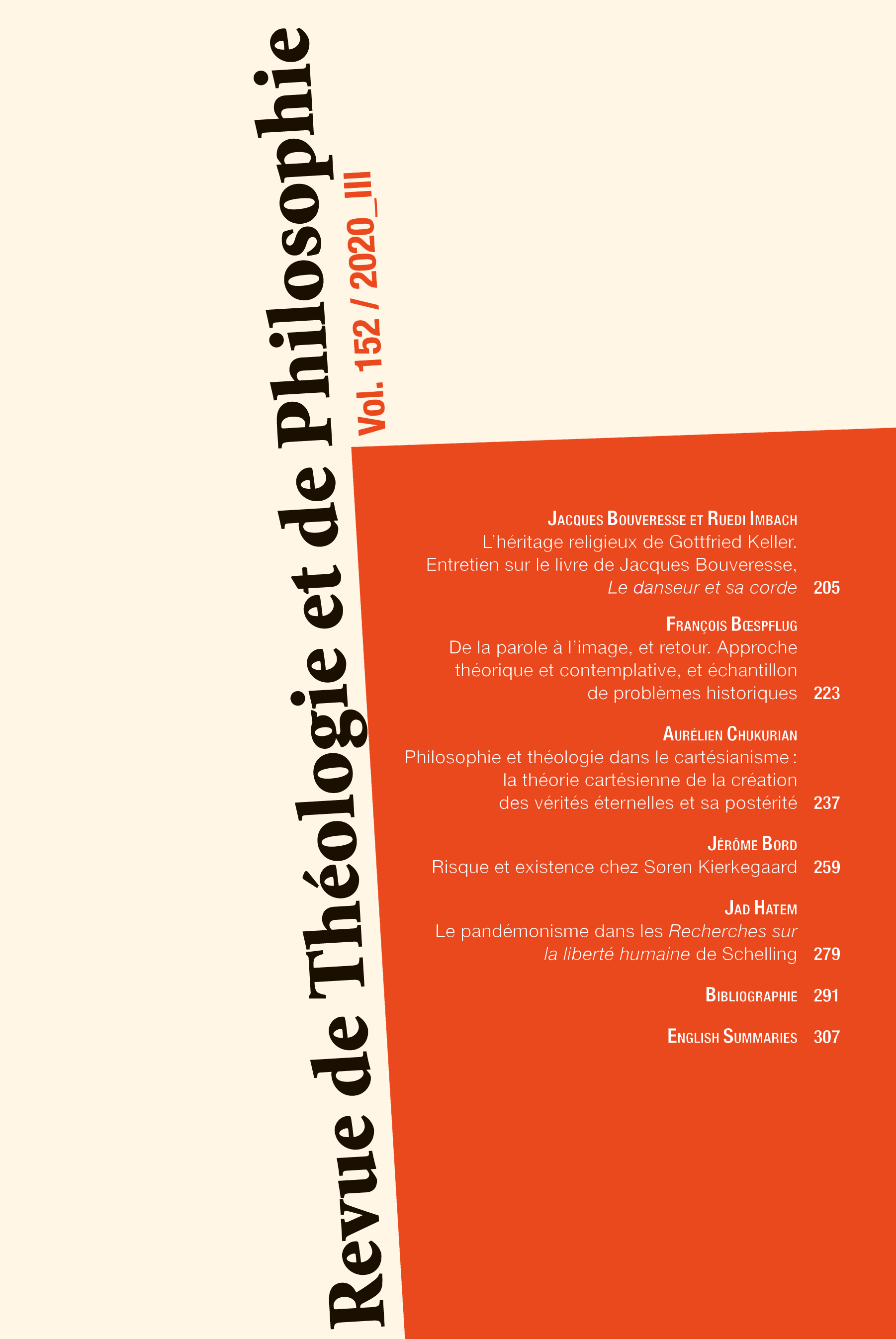Descartes and Theology
Abstract
This article examines Descartes’ theory of the free creation of eternal truths, showing the theological implications of its underlying philosophical principles. The author ponders the way in which Descartes treats certain topics that pertain to natural theology (God’s dignity and power, the equivocity between the finite and the infinite), as well as the Christological tension that runs through his theory. The theological echoes of this theory are then assessed, looking at thinkers after Descartes as well as the minores, with a focus on two theological themes: the recovery of univocity, and some of the contours of the kind of Christology Descartes’ theory authorizes. The aim of the article, by showing the fruitfulness of an approach that places modern philosophy and theology in conversation, is to ask how a theological reading of Descartes and Cartesian thought may help renew its study.
How to Cite
More Citation Formats
Issue
Most read articles by the same author(s)
- Aurélien Chukurian, Cartesianism’s Grappling with Theodicy, Revue de Théologie et de Philosophie: Vol. 150 n° 2 (2018):
- Aurélien Chukurian, Descartes’ Approach of the Divine Attributes, Revue de Théologie et de Philosophie: Vol. 150 n° 4 (2018):
- Aurélien Chukurian, Philosophy in the Hollow of Theology, Revue de Théologie et de Philosophie: Vol. 155 n° 4 (2023): 60 ans du Séminaire de culture théologique (Lausanne)
